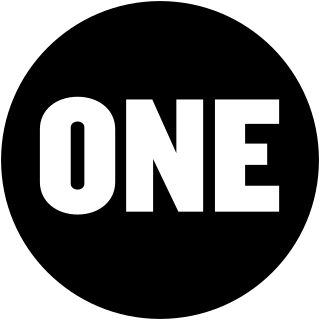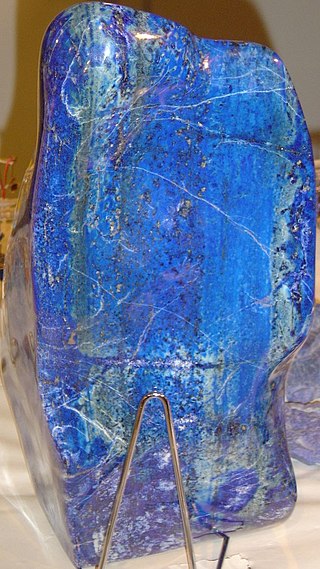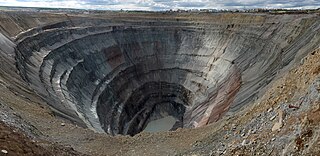
Mining is the extraction of valuable geological materials and minerals from the surface of the Earth. Mining is required to obtain most materials that cannot be grown through agricultural processes, or feasibly created artificially in a laboratory or factory. Ores recovered by mining include metals, coal, oil shale, gemstones, limestone, chalk, dimension stone, rock salt, potash, gravel, and clay. The ore must be a rock or mineral that contains valuable constituent, can be extracted or mined and sold for profit. Mining in a wider sense includes extraction of any non-renewable resource such as petroleum, natural gas, or even water.

Natural resources are resources that are drawn from nature and used with few modifications. This includes the sources of valued characteristics such as commercial and industrial use, aesthetic value, scientific interest, and cultural value. On Earth, it includes sunlight, atmosphere, water, land, all minerals along with all vegetation, and wildlife.

The Athabasca oil sands, also known as the Athabasca tar sands, are large deposits of bitumen, a heavy and viscous form of petroleum, located in northeastern Alberta, Canada. These reserves are one of the largest sources of unconventional oil in the world, making Canada a significant player in the global energy market.

John Norman McKay is a Canadian lawyer and politician. He is the Liberal Member of Parliament for the riding of Scarborough-Guildwood. McKay was Parliamentary Secretary to the Minister of Finance from 2003 to 2006 during the government of Paul Martin, then served as an opposition MP and critic until November 2015 during the government of Stephen Harper. As of April, 2019, he serves as Chair of the Standing Committee on Public Safety and National Security; Chair of the Canadian Section of the Canada-United States Permanent Joint Board on Defence; Chair of the Canada-United Kingdom Inter-Parliamentary Association, Vice-chair of the Canada-United States Inter-Parliamentary Group, and Counsellor Canadian NATO Parliamentary Association.
The Center for International Environmental Law (CIEL) is a public nonprofit environmental law organization based in Washington, DC, with an office in Geneva, Switzerland. It was founded in 1989. CIEL's team aims to use "the power of law to protect the environment, promote human rights, and ensure a just and sustainable society. CIEL seeks a world where the law reflects the interconnection between humans and the environment, respects the limits of the planet, protects the dignity and equality of each person, and encourages all of earth’s inhabitants to live in balance with each other." They help educate organizations, corporations, and the public on environmental issues and conduct their own research. Carroll Muffett has been the president and CEO of CIEL since September 2010. CIEL also offer legal internship programs.

ONE Campaign is an international, non-partisan, non-profit advocacy and campaigning organization that fights extreme poverty and preventable disease, particularly in Africa, by raising public awareness and pressuring political leaders to support policies and programs that save lives and improve futures.
Tearfund is an international Christian relief and development agency based in Teddington, UK. It currently works in around 50 countries, with a primary focus on supporting those in poverty and providing disaster relief for disadvantaged communities.

The Extractive Industries Transparency Initiative (EITI) is a global standard for the good governance of oil, gas and mineral resources. It seeks to address the key governance issues in the extractive sectors.

Nigerian National Petroleum Corporation (NNPC) is a for profit oil company in Nigeria. Formerly a government-owned corporation, it was transformed from a corporation to a limited liability company in July 2022. NNPC Limited is the only entity licensed to operate in the country's petroleum industry. It partners with foreign oil companies to exploit Nigeria's fossil fuel resources.

Global Witness is an international NGO established in 1993 that works to break the links between natural resource exploitation, conflict, poverty, corruption, and human rights abuses worldwide. The organisation has offices in London and Washington, D.C.
Mineral rights are property rights to exploit an area for the minerals it harbors. Mineral rights can be separate from property ownership. Mineral rights can refer to sedentary minerals that do not move below the Earth's surface or fluid minerals such as oil or natural gas. There are three major types of mineral property: unified estate, severed or split estate, and fractional ownership of minerals.

Mining in Afghanistan was controlled by the Ministry of Mines and Petroleum, prior to the August 15th takeover by the Taliban. It is headquartered in Kabul with regional offices in other parts of the country. Afghanistan has over 1,400 mineral fields, containing barite, chromite, coal, copper, gold, iron ore, lead, natural gas, petroleum, precious and semi-precious stones, salt, sulfur, lithium, talc, and zinc, among many other minerals. Gemstones include high-quality emeralds, lapis lazuli, red garnet and ruby. According to a joint study by The Pentagon and the United States Geological Survey, Afghanistan has an estimated US$1 trillion of untapped minerals.

The mineral industry is one of the main sectors of the Armenian economy and in 2017 accounted for 30.1% of its exports.

Kumi Naidoo is a human rights and climate justice activist. He was International Executive Director of Greenpeace International and Secretary General of Amnesty International. Naidoo served as the Secretary-General of CIVICUS, the international alliance for citizen participation, from 1998 to 2008. As a fifteen-year old, he organised students in school boycotts against the apartheid regime and its educational system in South Africa. Naidoo’s activism went from neighbourhood organising and community youth work to civil disobedience with mass mobilisations against the white controlled apartheid government. Naidoo is a co-founder of the Helping Hands Youth Organisation. He has written about his activism in this period in his memoirs titled, Letters to My Mother: The Making of a Troublemaker. In the book Naidoo recounts the day of his mother’s suicide when he was just 15 and how it became a catalyst for his journey into radical action against the Nationalist Party’s apartheid regime.
The Amsterdam Global Conference on Sustainability and Transparency was held for the third time in May 2010. Over the years, the conference has seen the world’s largest gathering of leaders, thinkers and doers in the field of sustainability reporting, with debates being convened on how reporting can be used to help build a better future. Thought leaders from business, finance, government and civil society have been brought together to debate the political, strategic and practical choices confronting the world and expert practitioners have led workshops and interactive sessions to define the building blocks of more effective reporting.

The mining industry of Sierra Leone accounted for 4.5 percent of the country's GDP in 2007 and minerals made up 79 percent of total export revenue with diamonds accounting for 46 percent of export revenue in 2008. The main minerals mined in Sierra Leone are diamonds, rutile, bauxite, gold, iron and limonite.
Voices-Voix was a Canadian coalition of organizations and individuals seeking to defend democracy and enable civil society. It operated between 2010-2020. Voices-Voix worked on government accountability mainly at the federal level and focused on the rule of law, free speech, transparency, and equality. Working with allies, the Coalition also tracked the independence and integrity of Parliamentary institutions, the role of the Canadian government in working with Canadian companies working overseas, the promotion of the role of public science and environmental protection, and support for the rights of organized labour.
Accountable Now is a global platform, founded in 2008 by a group of independent non-profit organisations, which is intended to foster accountability and transparency of civil society organisations (CSOs), as well as stakeholder communication and performance. It supports CSOs to be transparent, responsive to stakeholders and focused on delivering impact.
Laury Haytayan is a Lebanese oil and gas expert in the Middle East and North Africa. Since 2011, she has been leading the parliamentary capacity development portfolio at the Natural Resource Governance Institute (NRGI) in the MENA region, focusing on the legislative and oversight roles of Arab parliamentarians in advancing reforms in the Middle East Oil and Gas sector.

Extractivism is the removal of natural resources particularly for export with minimal processing. This economic model is common throughout the Global South and the Arctic region, but also happens in some sacrifice zones in the Global North in European extractivism. The concept was coined in Portuguese as "extractivismo" in 1996 to describe the for-profit exploitation of forest resources in Brazil.













